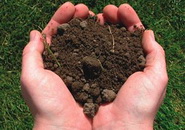|
|
 |
|
How to sell land
|
 |
| |
 18 May 2011
18 May 2011
Is it good or bad for Ukraine to allow the sale of agricultural land and, if so, under what conditions?
There is muted excitement in Ukraine that the authorities may soon bring forward proposals to allow the sale of agricultural land, either later this year or in early 2012. Although most agricultural land in Ukraine has been privatised in some form or other, a moratorium on sales of agricultural land remains in place.
The combination of the moratorium; a land privatisation model which left millions of small-holders with tiny plots; and economic policies (eg grain export quotas) that deter long-term investors, has resulted in great swathes of land in Ukraine lying fallow. In addition, it is difficult to use land as collateral for loans for agricultural investment. Proponents of lifting the moratorium argue that it would release a flood of investment, boost output and land prices and increase GNP growth by up to 2%. But others argue liberalisation is risky because foreigners might buy the land and might exploit it without regard for wider considerations, such as the environment. Some politicians therefore argue that land sales should be subject to tough conditions: for example, limiting sale to Ukrainians or imposing strict rules about land use.
There’s a simple rule here. This is that the more controls which are put on the ability of people to buy and sell land, the lower the price will be. The lower the price, the less direct benefit to landowners. Lower land prices will also mean less investment and restrain Ukrainian agricultural production. This would be a tragedy for Ukraine in general and for the agricultural sector in particular – at a time when high global food prices should be benefiting Ukraine as a major agricultural producer. There is also a risk that, if the buying and selling of land were excessively regulated, there would be scope for corruption and much of the land would end up being bought by people with connections to the authorities at local or national level. Again, this would depress prices, investment and production.
It’s understandable that Ukrainians are nervous about the idea that foreigners might get hold of land, when the rich black earth of the country is undoubtedly one of its greatest assets. But it is more important that good use is made of that asset than that a person one side or other of a border has the right to own it. The chances of achieving an agriculture bonanza in Ukraine are greater if basic decisions are left to the market, not civil servants.
Source: Foreign & Commonwealth Office
|

![]() |



